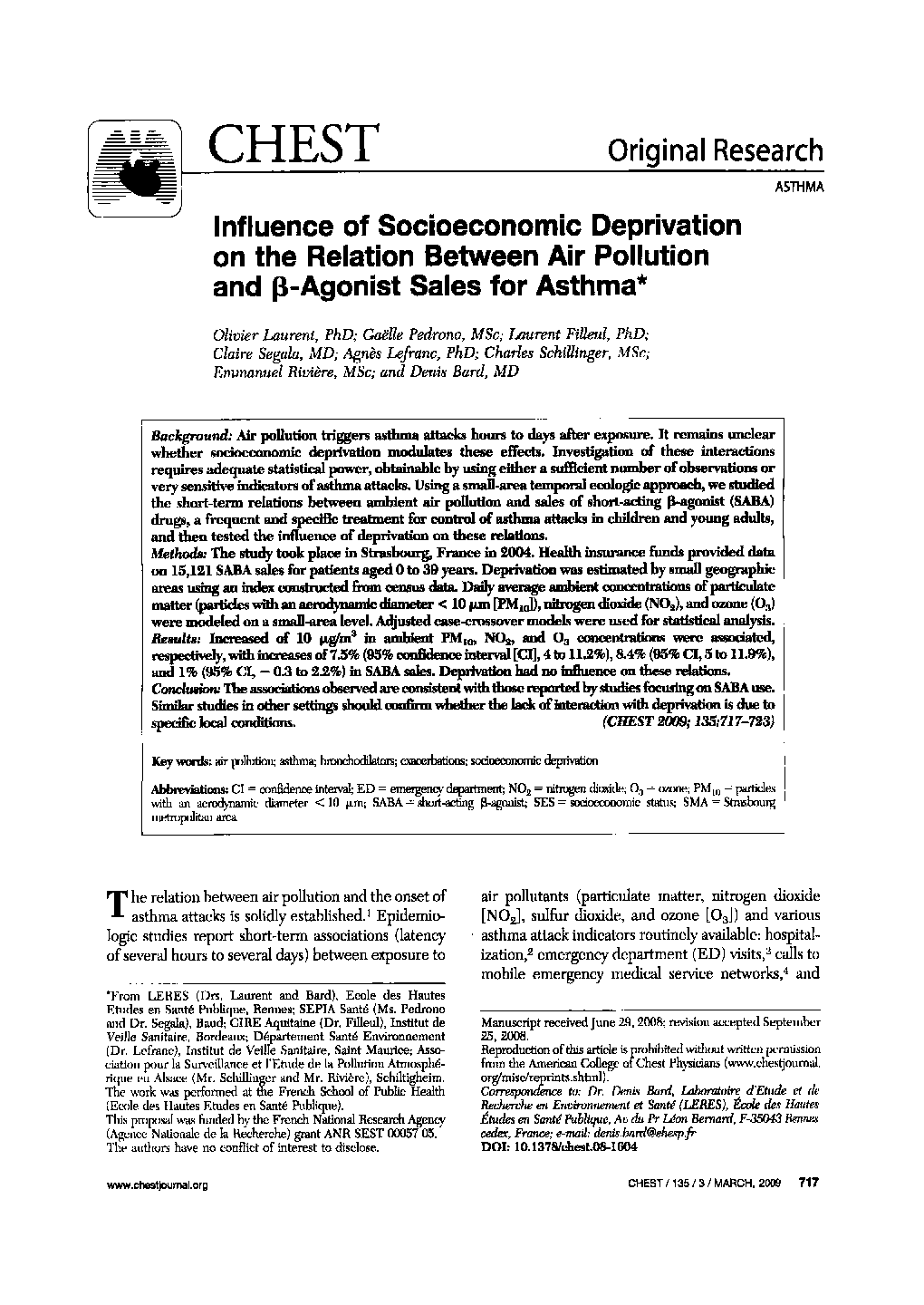| Article ID | Journal | Published Year | Pages | File Type |
|---|---|---|---|---|
| 2903740 | Chest | 2009 | 7 Pages |
BackgroundAir pollution triggers asthma attacks hours to days after exposure. It remains unclear whether socioeconomic deprivation modulates these effects. Investigation of these interactions requires adequate statistical power, obtainable by using either a sufficient number of observations or very sensitive indicators of asthma attacks. Using a small-area temporal ecologic approach, we studied the short-term relations between ambient air pollution and sales of short-acting β-agonist (SABA) drugs, a frequent and specific treatment for control of asthma attacks in children and young adults, and then tested the influence of deprivation on these relations.MethodsThe study took place in Strasbourg, France in 2004. Health insurance funds provided data on 15,121 SABA sales for patients aged 0 to 39 years. Deprivation was estimated by small geographic areas using an index constructed from census data. Daily average ambient concentrations of particulate matter (particles with an aerodynamic diameter < 10 μm [PM10]), nitrogen dioxide (NO2), and ozone (O3) were modeled on a small-area level. Adjusted case-crossover models were used for statistical analysis.ResultsIncreased of 10 μg/m3 in ambient PM10, NO2, and O3 concentrations were associated, respectively, with increases of 7.5% (95% confidence interval [CI], 4 to 11.2%), 8.4% (95% CI, 5 to 11.9%), and 1% (95% CI, − 0.3 to 2.2%) in SABA sales. Deprivation had no influence on these relations.ConclusionThe associations observed are consistent with those reported by studies focusing on SABA use. Similar studies in other settings should confirm whether the lack of interaction with deprivation is due to specific local conditions.
